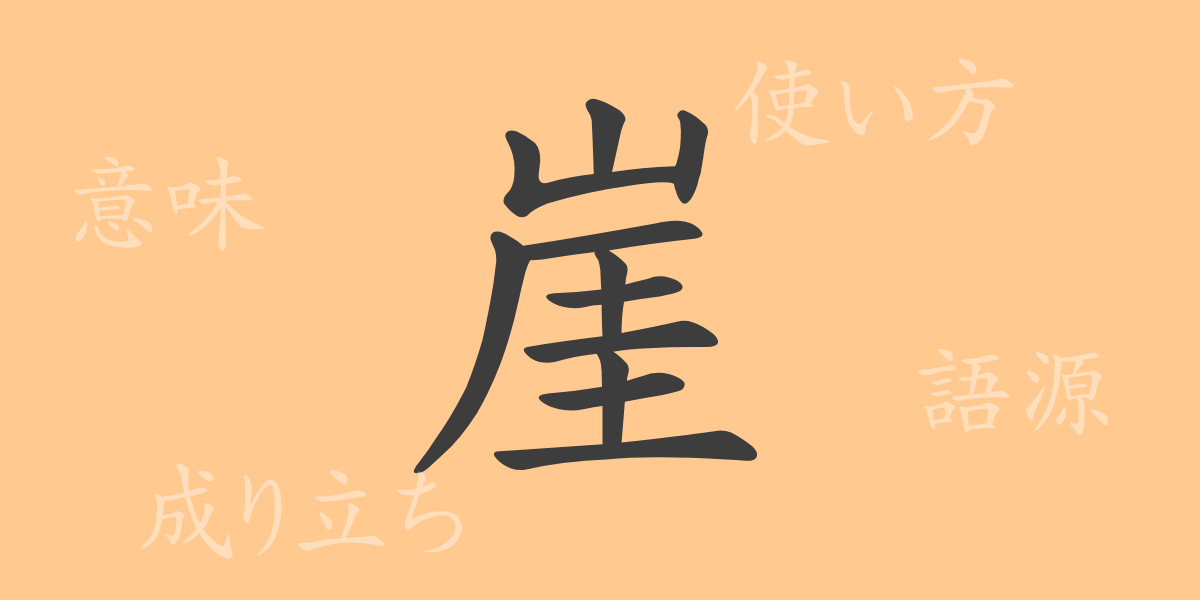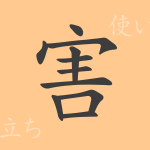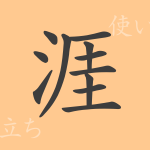Cliffs, a symbol of Japan’s rich natural beauty, encapsulate the strength of nature and the depth of history in a single character. But what meanings are imbued in this Kanji we use so often, and what background does it have? This article delves into the origins of the Kanji for “cliff” (崖)(Gai), its usage, and explores its full scope, including idioms and proverbs associated with it.
The Origin of the Kanji for Cliff (崖)(Gai)
The character for “cliff” (崖) (Gai)can be traced back to ancient Chinese texts. Originally, it evolved from a pictograph representing the steepness of mountains and rocks, changing over time to become the current Kanji (崖)(Gai). As a character, “cliff” (崖) began to be used to denote natural terrain, and it became an expression closely related to people’s lives and culture.
The Meaning and Usage of Cliff (崖)(Gai)
The Kanji for “cliff” (崖)(Gai), read directly as “gake” , refers to places where mountains, hills, or the ground drop off sharply. Metaphorically, it can also represent a critical situation or “the brink of a crisis.” The phrase “cliff’s edge” (Gake-pputi) is commonly used to describe a dire situation or facing a significant turning point.
How to Read Cliff (崖)(Gai), Stroke Count, and Radical
The Kanji for “cliff” (崖) (Gai)not only reflects its shape and usage but also showcases the richness of the Japanese language through its readings, stroke count, and radical.
- Readings: On’yomi is “Gai” , Kun’yomi is “gake”
- Stroke Count: A total of 11 strokes
- Radical: Mountain radical (Yamabu or Yamahen)
Idioms, Common Phrases, and Proverbs Using Cliff (崖)(Gai) and Their Meanings
There are many idioms, common phrases, and proverbs that include the word “cliff” (崖)(Gai), which describe natural landscapes or situations in life. For example, “Ponyo on the Cliff by the Sea” (崖の上のポニョ) (Gake-no-ue-no-ponyo)is known as the title of a popular movie, “cliff’s edge” (崖っぷち)(Gake-pputi) describes a desperate situation, and “climbing a cliff” (崖を登る)(Gake-wo-nobo-ru) symbolizes the courage to face difficulties. These expressions have the power to deeply resonate with our emotions and experiences.
Summary About Cliff (崖)(Gai)
The Kanji for “cliff” (崖)(Gai) is a vocabulary well-suited to expressing the grandeur of nature and pivotal moments in life. By understanding its origin, meaning, and usage, we can once again appreciate the depth and richness of the Japanese language. Each feature etched by the mountains has its history and story, and “cliff” (崖)(Gai) continues to live in our language as a word that symbolizes them.

























